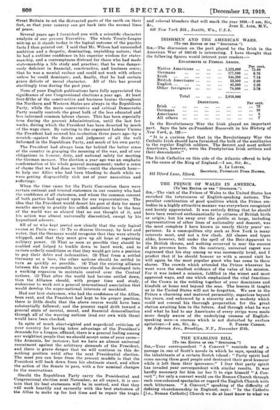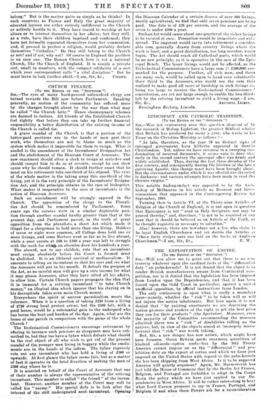THE ENABLING BILL.
[To TEL EDITOR OF THE " SPECTATOR."1 SIR,—Your correspondent "A Convert " reminds me of a passage in one of Scott's novels in which he says, speaking of the inhabitants of a certain Scotch island : " Party spirit had come among these good people and destroyed their goad humour while it left them their ignorance." I fear that party spirit has invaded your correspondent with similar results. It was hardly necessary for him (or her ?) to sign himself "A Convert"; for only a convert would see the Roman Church through such rose-coloured spectacles or regard the English Church with such bitterness. "A Convert," speaking of the difficulty of defining rhurehmanship in England; says: " In 'the Catholic [i.e., Roman Catholic] Church we do at least know to what we
belong." But is the matter quite so simple as he thinks? In such countries as France and Italy the great majority cf educated laymen are either entirely indifferent to the Church or actively hostile to it. They have ceased to worship at her altars or to interest themselves in her affairs; but they still, as a rule, have their children baptized and confirmed; they have not formally separated themselves from her communion, and, if pressed to profess a religion, would probably declare themselves " Catholi." Do they still belong to the Church or not? and if not, why not? Of course in England the problem is an easy one. The Roman Church here is not a national Church, like the Church of England. It is simply a private sect, small in numbers, with the compact solidarity of a sect which your correspondent calls "a vital discipline." But he
must learn to look further afield.—I am, Sir, &e., CITIZEN.



















































 Previous page
Previous page